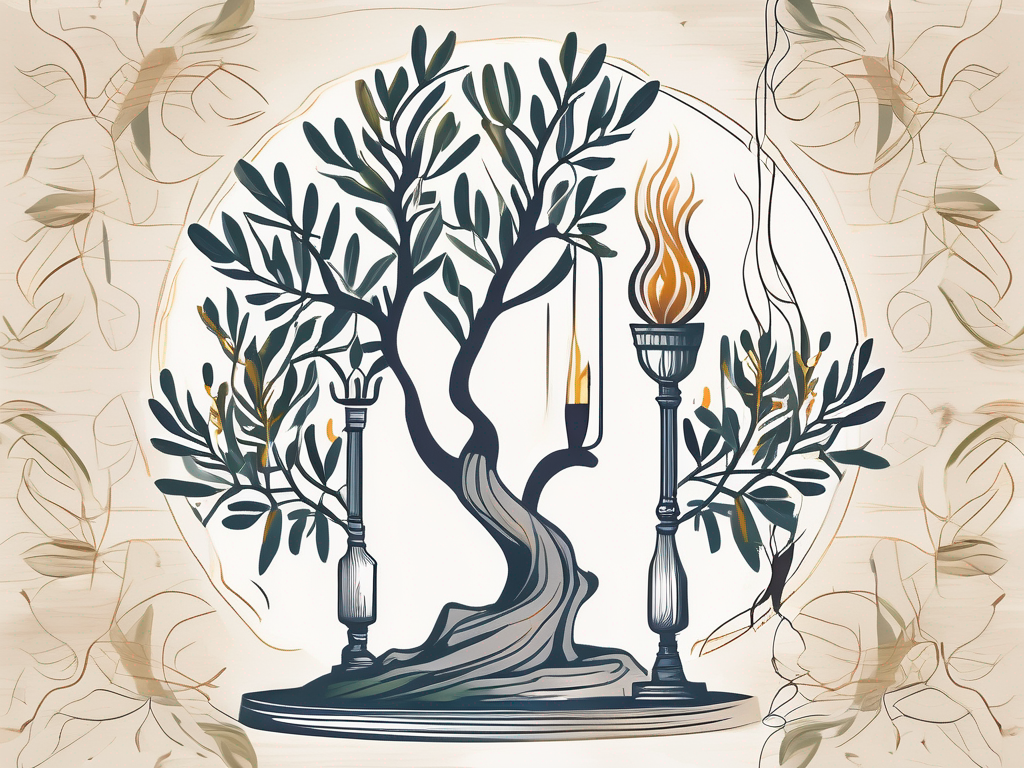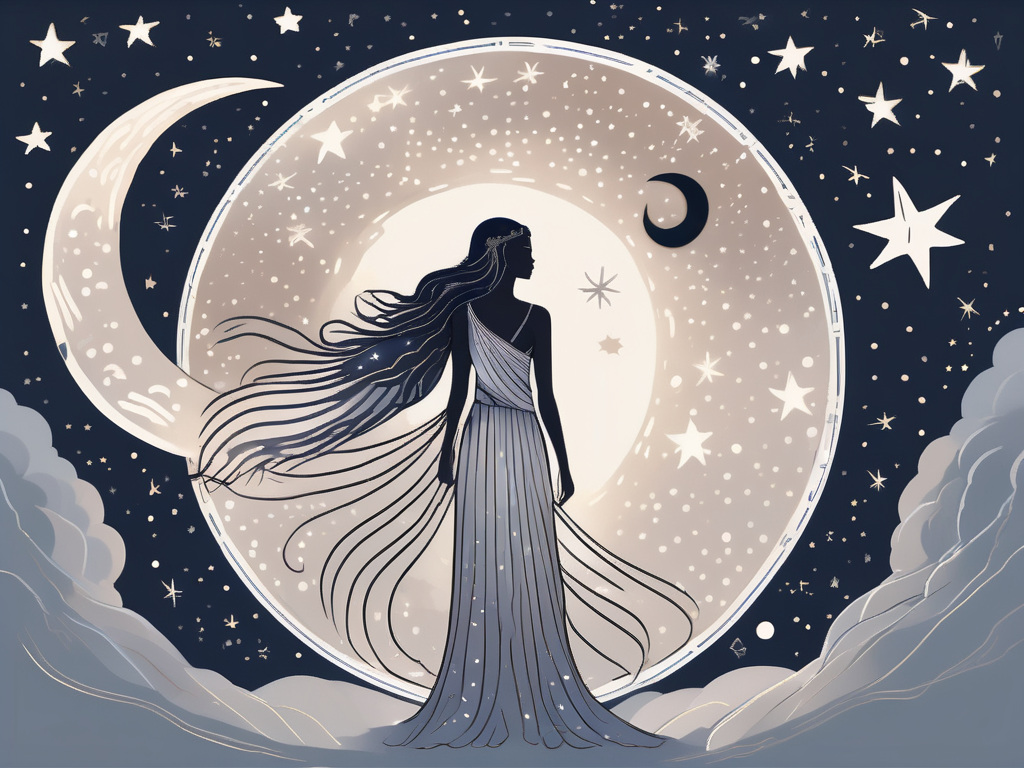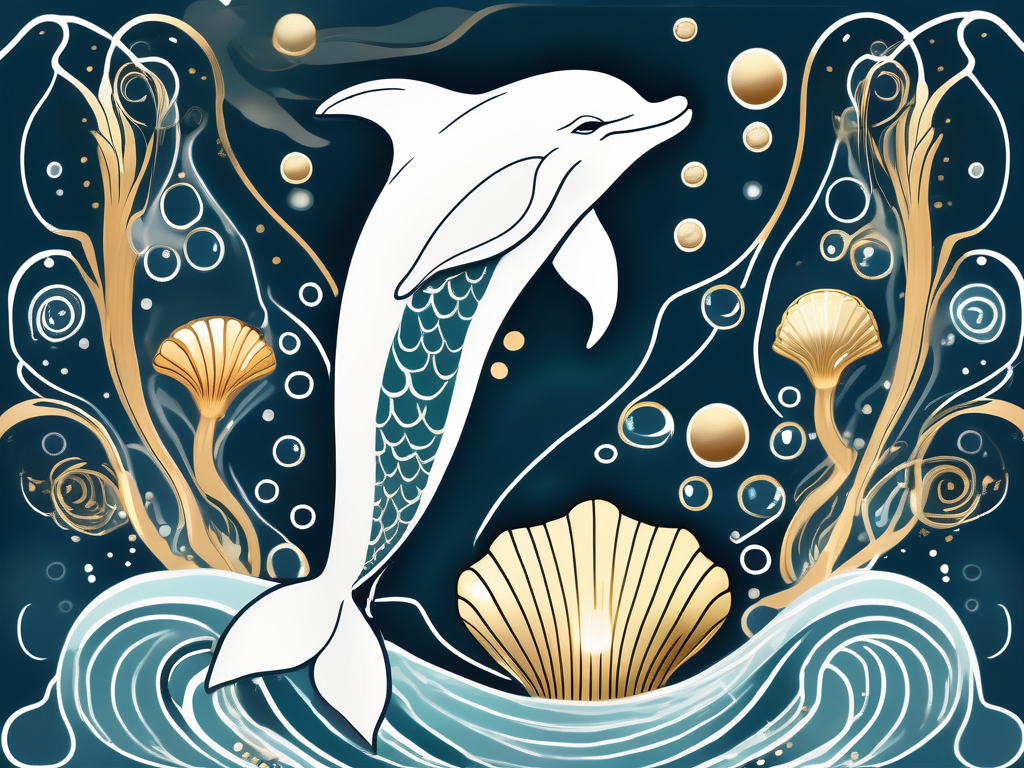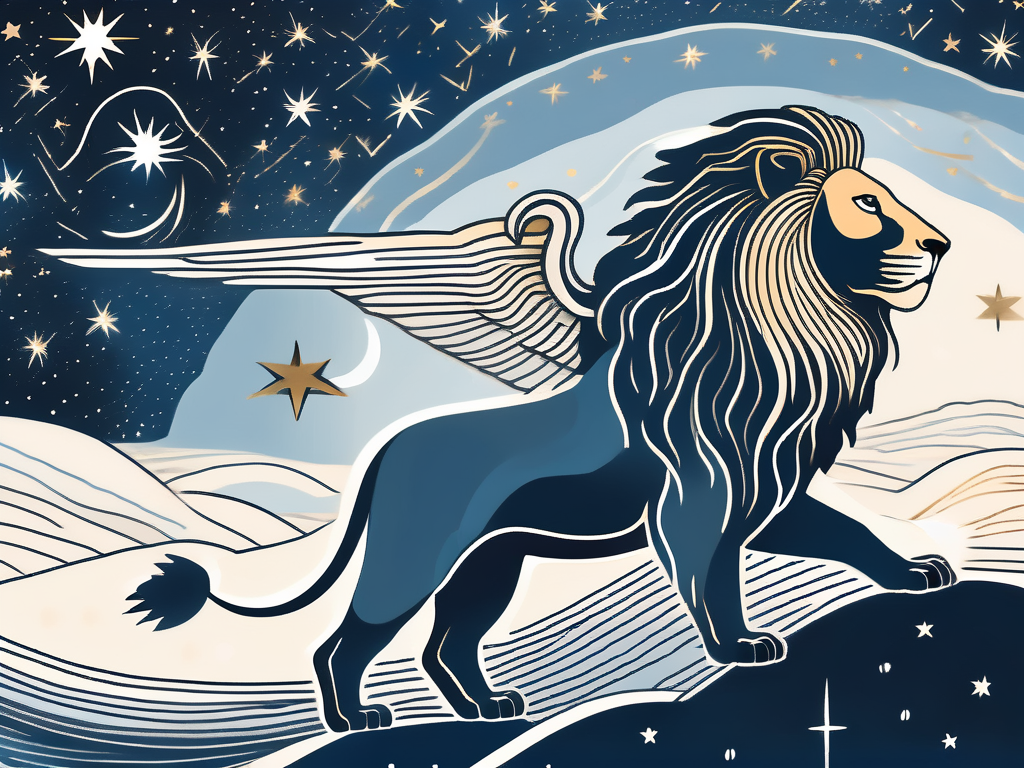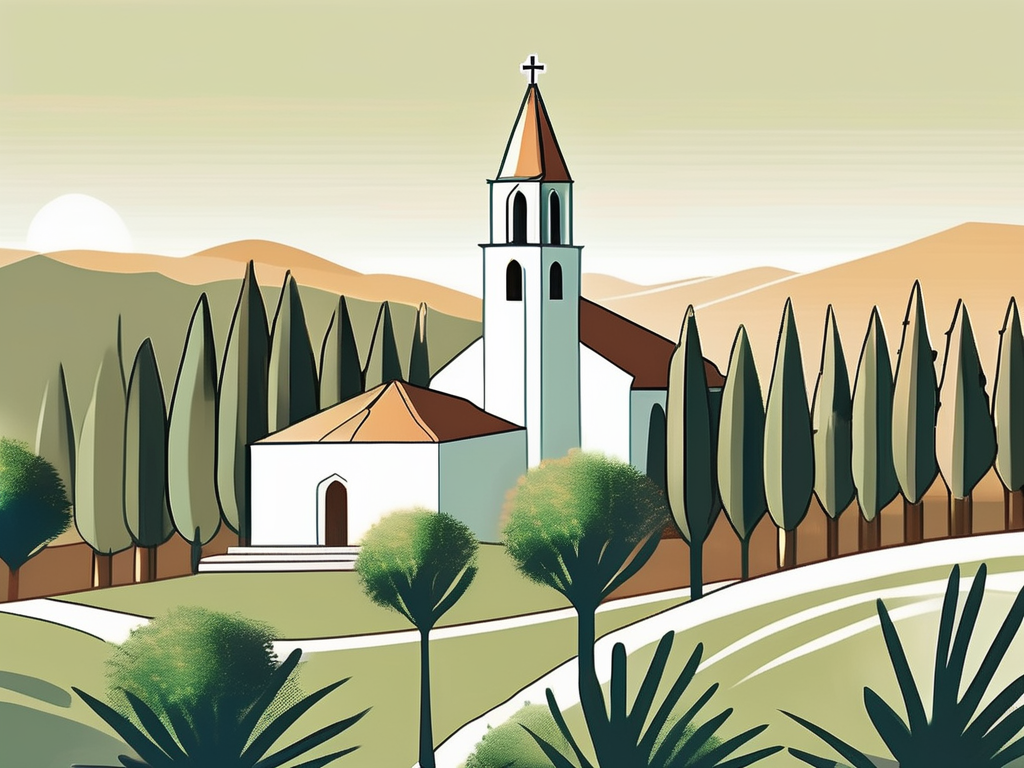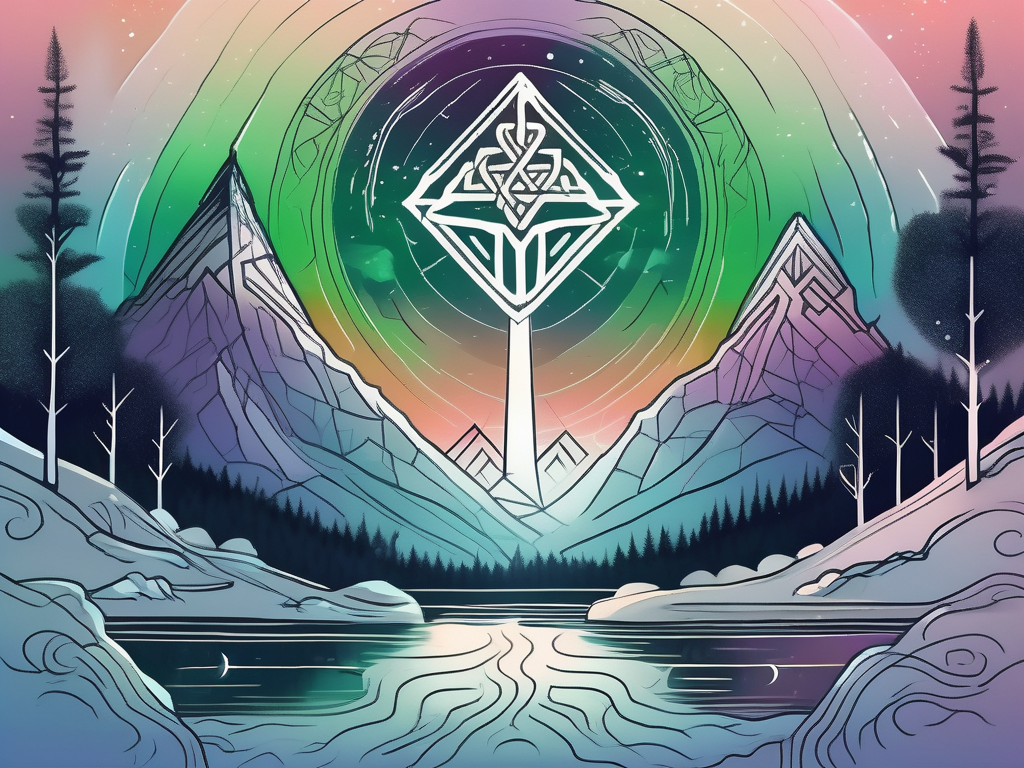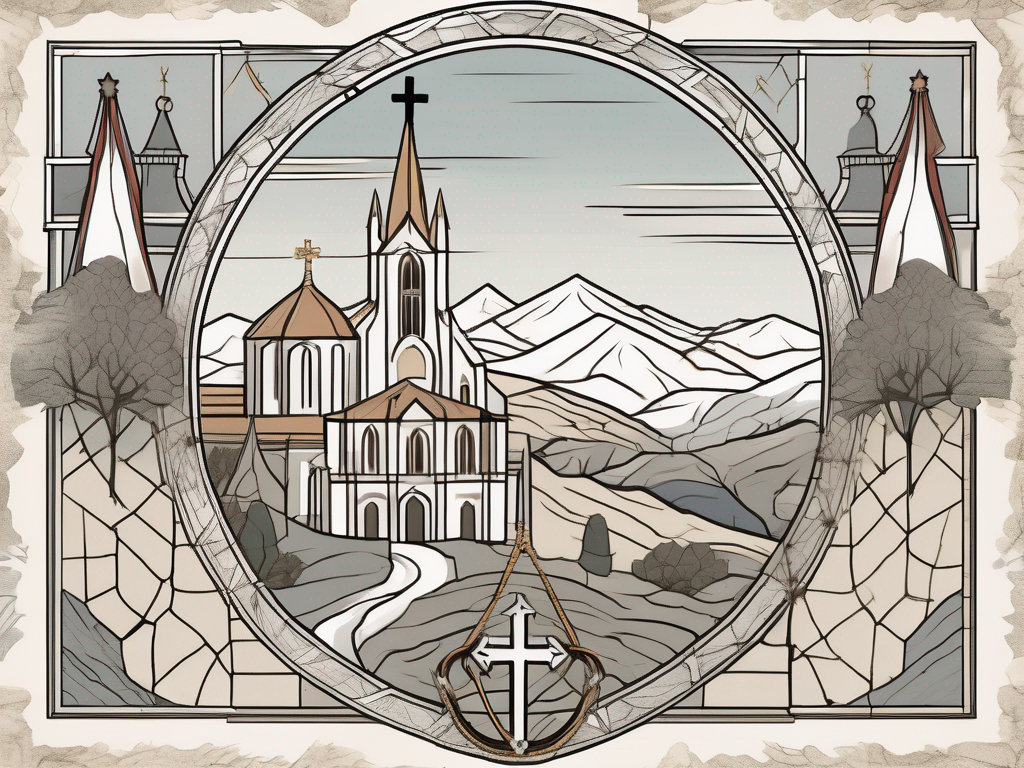The ancient Greek pantheon is filled with gods and goddesses who possess incredible powers and fascinating stories. One such deity is Gaia, the Greek goddess of Earth. In this article, we will delve into the mythology and symbolism surrounding Gaia, as well as her profound influence on both ancient and modern cultures.
Understanding Gaia: An Overview
Before we dive into the depths of Gaia’s mythology, let’s start with a brief overview of who she is. Gaia is often considered the personification of Earth itself, representing the physical, nurturing aspects of our planet. She is revered as the mother of all gods and titans, playing a crucial role in the creation and sustenance of life.
Gaia’s origins can be traced back to Greek mythology, where she is regarded as one of the primordial deities. According to ancient tales, Gaia emerged from Chaos at the dawn of creation, embodying the very essence of the Earth. With her arrival, the world gained form and substance, and she became the foundation upon which all life would flourish.
Gaia in Greek Mythology
In Greek mythology, Gaia is not just a passive entity but an active participant in the divine hierarchy. She is regarded as the mother of the sky god, Uranus, whom she brought forth as her mate. Together, they formed a powerful union that would shape the course of history.
From their union, Gaia and Uranus bore a host of mighty children, including the titans and cyclopes. These offspring would go on to become significant figures in Greek mythology, playing pivotal roles in the cosmic order.
However, Gaia’s relationship with Uranus soon turned tumultuous. Uranus, fearing the power of his own children, imprisoned them within the depths of the Earth. This act of cruelty and oppression deeply angered Gaia, and she resolved to seek justice for her offspring.
With her unwavering determination, Gaia conspired against Uranus and helped her son, Cronus, overthrow him. This marked the beginning of a new era, where the titans would reign supreme under Cronus’ rule.
Gaia’s Role and Responsibilities
As the goddess of Earth, Gaia holds tremendous responsibilities. She is not merely a passive observer but an active participant in the natural world. Gaia oversees the fertility of the land, ensuring bountiful harvests and prosperous agriculture. Her divine energy flows through every mountain, river, and forest, sustaining the delicate balance of the Earth’s ecosystems.
Moreover, Gaia plays an essential role in preserving the delicate balance of the natural world. She is the protector of all living creatures, nurturing and sustaining life in its myriad forms. From the smallest insects to the mightiest beasts, Gaia’s love and care encompass all.
Throughout history, humans have recognized and revered Gaia’s role in the world. Cultures across the globe have worshipped her in various forms, offering prayers and rituals to honor her presence. Gaia’s influence extends beyond mythology and religion, as her teachings inspire a deep respect for the Earth and a commitment to its preservation.
Today, as we face the challenges of climate change and environmental degradation, the wisdom of Gaia’s mythology resonates more than ever. Understanding Gaia’s role in Greek mythology not only enriches our knowledge of ancient civilizations but also encourages us to embrace our responsibility as stewards of the Earth.
The Symbolism of Gaia
Gaia’s symbolism is deeply intertwined with her nature as the mother earth. She embodies the concept of fertility and represents the cyclical patterns of birth, growth, and decay. Gaia is a powerful symbol of the life-force that flows through every living entity.
But what exactly does it mean for Gaia to be the mother earth? As the mother of all gods and titans, Gaia is often depicted as a nurturing figure. She provides sustenance to her children, just as the Earth sustains all living beings. Gaia’s maternal qualities symbolize her love and care for the world, making her an embodiment of compassion and unconditional support.
Gaia as the Mother Earth
As we delve deeper into Gaia’s symbolism, it becomes clear that her role as the mother earth extends beyond mere nurturing. She is the very essence of life, the source from which all things spring forth. Just as a mother gives birth to her children, Gaia gives birth to the world.
Imagine the awe-inspiring sight of a newborn baby, so full of potential and promise. This is the image that Gaia evokes, as she represents the beginning of life’s journey. She is the foundation upon which all existence is built, the fertile ground from which all living things emerge.
But Gaia’s connection to fertility and the cycle of life goes even deeper. Ancient Greeks believed that her blessings were necessary for successful agriculture and prosperous harvests. Farmers would often make offerings to Gaia, seeking her favor and protection for their crops.
Gaia’s Connection to Fertility and Agriculture
As we walk through the lush fields of a bountiful harvest, we can’t help but feel a sense of gratitude towards Gaia. Her connection to fertility is not limited to agriculture alone. She represents the cycle of life itself, encompassing birth, growth, and regeneration.
Just as a seed is planted in the earth, it germinates and sprouts, reaching towards the sun. Gaia’s life-force courses through every blade of grass, every towering tree, and every delicate flower. She reminds us of the interconnectedness of all living things, and the importance of nurturing our planet.
When we look at Gaia, we see not just a symbol, but a living embodiment of the earth’s beauty and abundance. She is a reminder that we are all part of a greater whole, and that our actions have consequences that ripple through the intricate web of life.
So the next time you find yourself in nature, take a moment to appreciate Gaia’s presence. Feel the earth beneath your feet, the gentle breeze on your skin, and the vibrant colors of the world around you. In those moments, you will understand the true power and significance of Gaia’s symbolism.
Gaia’s Influence on Modern Culture
Although rooted in ancient mythology, Gaia’s influence continues to resonate in modern culture. Her significance can be found in the realms of literature, art, environmental movements, and even popular culture.
In literature, Gaia’s mythology has served as a rich source of inspiration for countless authors. Her depiction in various literary works has portrayed her as a powerful and wise figure, often embodying the nurturing and life-giving qualities associated with the Earth. From epic poems to contemporary novels, Gaia’s presence can be felt in the pages of literature, reminding readers of the interconnectedness between humanity and the natural world.
Similarly, Gaia’s influence extends to the world of art. Throughout history, artists have been captivated by her mythological persona, translating her essence onto canvas, sculpture, and other artistic mediums. Gaia is often portrayed as a majestic figure, radiating both power and serenity. These artistic representations not only celebrate the beauty of the Earth but also serve as a reminder of our responsibility to protect and cherish it.
However, Gaia’s impact on modern culture goes beyond the realms of literature and art. The concept of Gaia has had a profound influence on environmental movements around the world. The Gaia hypothesis, proposed by scientist James Lovelock, suggests that the Earth is a self-regulating organism, where all living and non-living components interact to maintain a stable and balanced environment.
This hypothesis has inspired many environmentalists to advocate for the preservation and conservation of our planet. Gaia’s representation as a living, interconnected organism serves as a powerful metaphor, reminding us of the delicate balance that exists in nature and the importance of taking action to protect it.
Moreover, Gaia’s influence can also be seen in popular culture. From movies and television shows to video games and music, references to Gaia and her mythological significance are often woven into the fabric of modern storytelling. These references not only pay homage to ancient mythology but also serve as a means to connect with audiences on a deeper level, invoking a sense of awe and reverence for the natural world.
In conclusion, Gaia’s influence on modern culture is far-reaching and multifaceted. From literature and art to environmental movements and popular culture, her mythological presence continues to inspire and remind us of our connection to the Earth. As we navigate the challenges of the present and future, Gaia’s enduring influence serves as a guiding force, urging us to protect and nurture the planet we call home.
Gaia’s Legacy in Contemporary Beliefs
As ancient myths evolve, Gaia has found a place in contemporary beliefs as well. The resurgence of neopaganism and modern spirituality has seen Gaia become a prominent figure once again.
Gaia in Neopaganism and Modern Spirituality
Neopaganism often reveres Gaia as a central deity, emphasizing the connection between humanity and the natural world. Many modern spiritual practices incorporate rituals and ceremonies dedicated to honoring Gaia and seeking her wisdom and blessings.
Gaia Hypothesis in Scientific Discourse
Interestingly, Gaia’s name is also associated with a scientific theory called the Gaia hypothesis. Proposed by scientist James Lovelock, this hypothesis suggests that the Earth is a self-regulating system capable of maintaining favorable conditions for life to thrive.
The Gaia hypothesis presents a unique intersection between science and mythology, highlighting the enduring influence of Gaia on our collective consciousness.
Interpreting Gaia’s Mythology
As we analyze Gaia’s mythology, it becomes clear that it holds profound insights into ancient Greek society and the human experience as a whole.
Gaia’s Mythology as a Reflection of Ancient Greek Society
Through Gaia’s complex interactions with other deities, we can glimpse into the power dynamics and familial conflicts that were prevalent in ancient Greek society. Her tale reflects the struggle for dominance and the cycles of creation and destruction that defined their worldview.
Furthermore, Gaia’s reverence and role as the mother of gods shed light on the significance of motherhood and familial ties in ancient Greek culture.
Gaia’s Mythology and its Universal Themes
While rooted in ancient Greece, Gaia’s mythology also explores universal themes that transcend time and culture. Her symbolism speaks to our deep connection with the natural world, reminding us of our innate responsibility to protect and nurture the Earth.
Moreover, Gaia’s story serves as a powerful metaphor for the circle of life, highlighting the inevitable cycles of creation, growth, and renewal that we all experience in our journey.
As we conclude our exploration of Gaia’s mythology and symbolism, it becomes apparent that her lasting legacy extends far beyond the annals of ancient Greek history. Gaia continues to inspire and challenge us to embrace our role as custodians of the Earth, encouraging us to honor and protect the very foundation of our existence.


